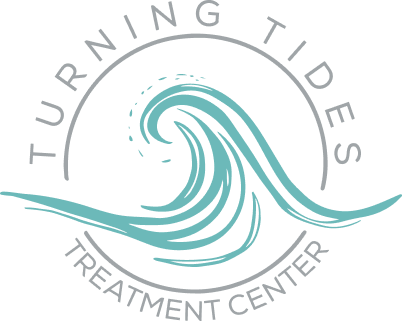Fentanyl Addiction Treatment
in Orange County
Fentanyl addiction represents a significant and growing public health concern. This synthetic opioid’s potency and addictive qualities have led to a surge in overdose cases and a pressing need for effective treatment solutions. In fact, according to the CDC, over 150 people die every day from drug overdoses related to synthetic opioids like fentanyl Turning Tides Treatment Center provides a beacon of hope, offering specialized and comprehensive care tailored to the unique challenges presented by fentanyl addiction.
What is Fentanyl?
Fentanyl is a synthetic opioid, recognized for its extreme potency and significant role in the opioid crisis. It is up to 100 times more powerful than morphine, making it one of the most potent opioids available. This drug was originally developed as a prescription drug for pain management treatments, particularly for cancer patients or as part of anesthesia for surgery. However, its powerful pain-relieving properties have led to widespread misuse and illegal production, contributing significantly to the opioid epidemic.
Risks and Side Effects of Fentanyl
Fentanyl, a potent synthetic opioid, is associated with a range of significant risks and side effects. These include both immediate and long-term health concerns and vary in severity. Below is a list of common risks and side effects associated with fentanyl use:
- Addiction and Dependence: Fentanyl’s high potency makes it highly addictive, leading to physical and psychological dependence.
- Overdose Risk: Due to its potency, there is a high risk of overdose, which can be fatal. Overdose symptoms include severe respiratory depression, loss of consciousness, and coma.
- Respiratory Depression: Fentanyl can slow down breathing, which can be life-threatening, especially when combined with other substances that depress the central nervous system.
- Cognitive Impairment: Prolonged use can lead to issues with memory, attention, and decision-making.
- Mental Health Issues: Users may experience worsening anxiety, depression, and paranoia.
- Gastrointestinal Problems: Nausea, vomiting, and constipation are common side effects.
- Immune System Suppression: Long-term use can weaken the immune system, making the body more susceptible to infections.
- Tolerance: Over time, users may develop a tolerance to fentanyl, requiring larger doses to achieve the same effect, which increases the risk of overdose.
- Withdrawal Symptoms: When a user stops taking fentanyl, they may experience withdrawal symptoms, including pain, insomnia, agitation, and flu-like symptoms.
- Cardiovascular Issues: Fentanyl use can lead to problems such as altered heart rate and increased blood pressure.
Understanding these risks and side effects is crucial for anyone dealing with fentanyl, whether as a user, healthcare provider, or loved one of someone using the substance. It highlights the importance of seeking professional help and treatment for fentanyl addiction.

Turning Tides Treatment Center: A Beacon of Hope
Turning Tides Treatment Center, located in the heart of Orange County, offers a comprehensive and compassionate approach to treating fentanyl addiction. Our center is equipped with state-of-the-art facilities and staffed by experienced professionals who are dedicated to providing personalized care. We understand that each journey to recovery is unique, and our programs are designed to meet the individual needs of our clients.
Treatment Modalities for Fentanyl Addiction
At Turning Tides, we employ a range of treatment modalities to combat fentanyl addiction effectively. These include medically-assisted detoxification to manage withdrawal symptoms, various forms of behavioral therapy to address underlying psychological factors, and holistic approaches like yoga and meditation to support overall well-being.
Personalized Care
We believe that personalized care is key to successful recovery. Each client receives an individualized treatment plan, tailored to their specific needs and circumstances. Our support systems are robust, involving not just the individual in treatment but also their family and community, to create a comprehensive support network.
Support for Families and Loved Ones
We recognize the vital role that families and loved ones play in the recovery process. Turning Tides provides education and counseling services to support families, helping them understand addiction and how best to support their loved ones during and after treatment.
Preparing for a Life Free of Addiction
Our commitment to our clients extends beyond the initial treatment phase. We provide comprehensive aftercare and relapse prevention programs to help individuals maintain their sobriety and build a sustainable, drug-free lifestyle. This includes ongoing counseling, support groups, and life skills training to navigate the challenges of post-treatment life.
Getting Started with Treatment
Beginning treatment at Turning Tides is a straightforward process. We provide clear guidance on how to enroll, and our team is available to assist with financial considerations and insurance queries. We strive to make our programs accessible to all who need them.
FAQs
Turning Tides Treatment Center distinguishes itself through its comprehensive, holistic approach to fentanyl addiction treatment. Unlike standard treatment methods that might focus solely on one aspect of addiction, Turning Tides integrates a variety of treatment modalities. This includes medically-assisted detox to manage withdrawal symptoms safely, behavioral therapies like Cognitive Behavioral Therapy (CBT) and Dialectical Behavior Therapy (DBT) to address underlying psychological issues, and holistic therapies such as yoga and meditation to support overall well-being. Additionally, our team of experts is highly trained in dealing with the specific challenges of fentanyl addiction, ensuring that each client receives the best possible care tailored to their unique situation.
The length of the treatment process at Turning Tides can vary greatly depending on the individual's specific needs and circumstances. Generally, treatment can range from a short-term program lasting a few weeks to a more extensive program that may extend for several months. The duration is often influenced by factors such as the severity of the addiction, the presence of any co-occurring mental health disorders, and the individual's response to treatment. Our primary goal is to ensure that each person receives the time and care needed to achieve a full recovery, without rushing the process.
Yes, family involvement is a critical component of our treatment approach at Turning Tides. We understand that addiction affects not just the individual but also their loved ones. Therefore, we offer various family therapy sessions and educational programs designed to involve family members in the recovery process. These sessions aim to improve communication, address any familial issues contributing to the addiction, and educate family members about addiction and recovery. This collaborative approach helps to create a strong support system for the individual, both during and after treatment.
Relapse prevention is a key focus at Turning Tides. Our approach involves equipping our clients with the knowledge and skills necessary to identify and manage potential triggers and high-risk situations. This includes ongoing counseling sessions where individuals can discuss their challenges and successes, participation in support groups where they can learn from and support others in recovery, and lifestyle coaching to help them develop healthier habits and coping mechanisms. We also emphasize the importance of developing a strong personal support network and engage clients in planning for their long-term recovery, even beyond the treatment period.
Overcome Addiction at Turning Tides
The path to overcoming fentanyl addiction is a journey of courage and commitment. At Turning Tides Treatment Center, we are dedicated to supporting individuals every step of the way, offering hope, healing, and a chance for a new beginning.
If you or a loved one are struggling with substance abuse or fentanyl addiction, get in touch with us today.
Clinically Reviewed by:

Matthew is a licensed marriage and family therapist and clinical supervisor in Orange County, California. Matthew has an extensive history working with the substance abuse and mental health population and is committed to client care with an ethical approach to treatment. Matthew utilizes a solution-focused, cognitive behavioral approach to therapy. He emphasizes the importance of creating a recovery environment which supports deep and meaningful sober connection, a system of accountability, daily structure and healthy routine, and an aftercare plan which will support continued sobriety post-treatment.
